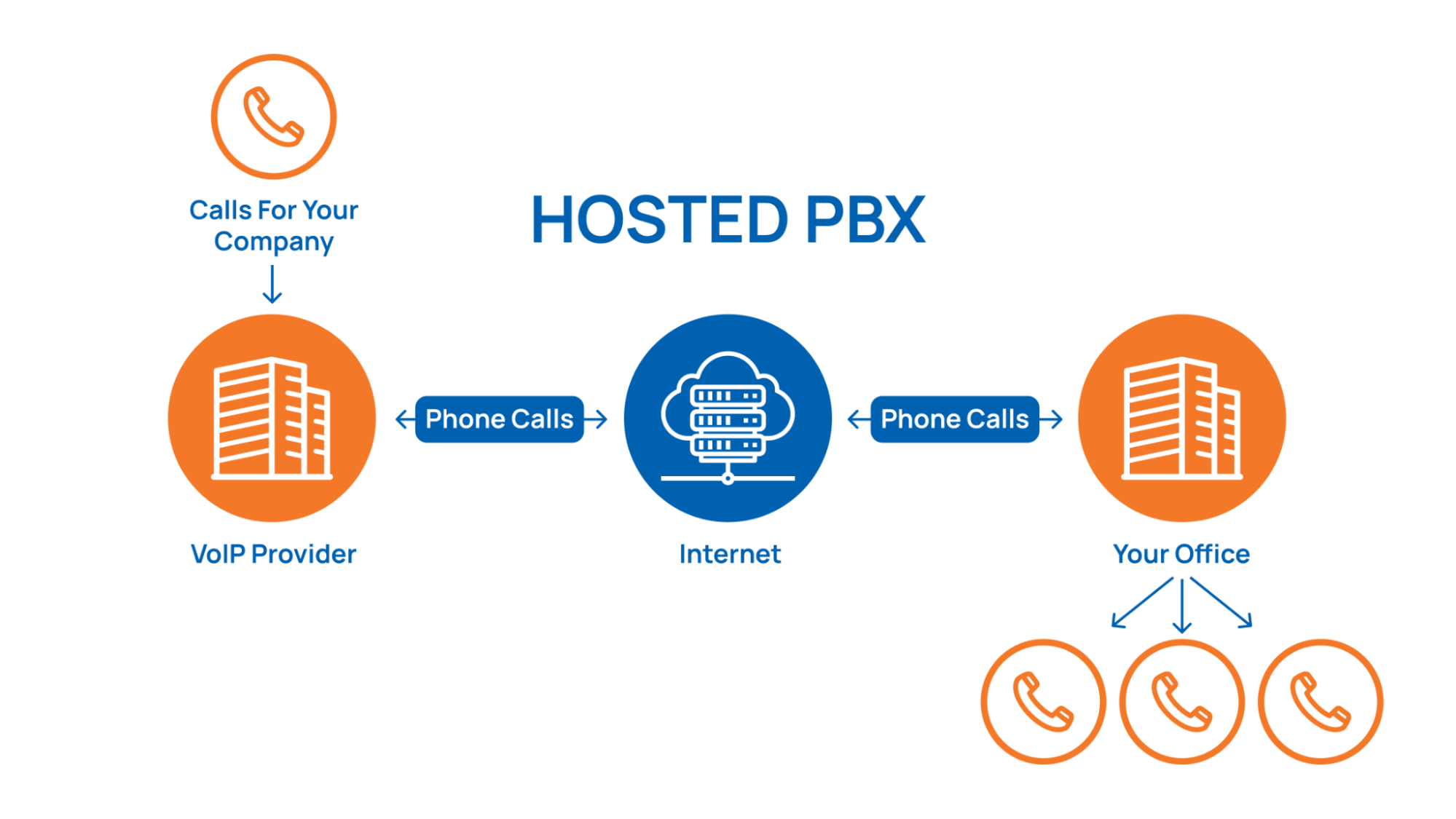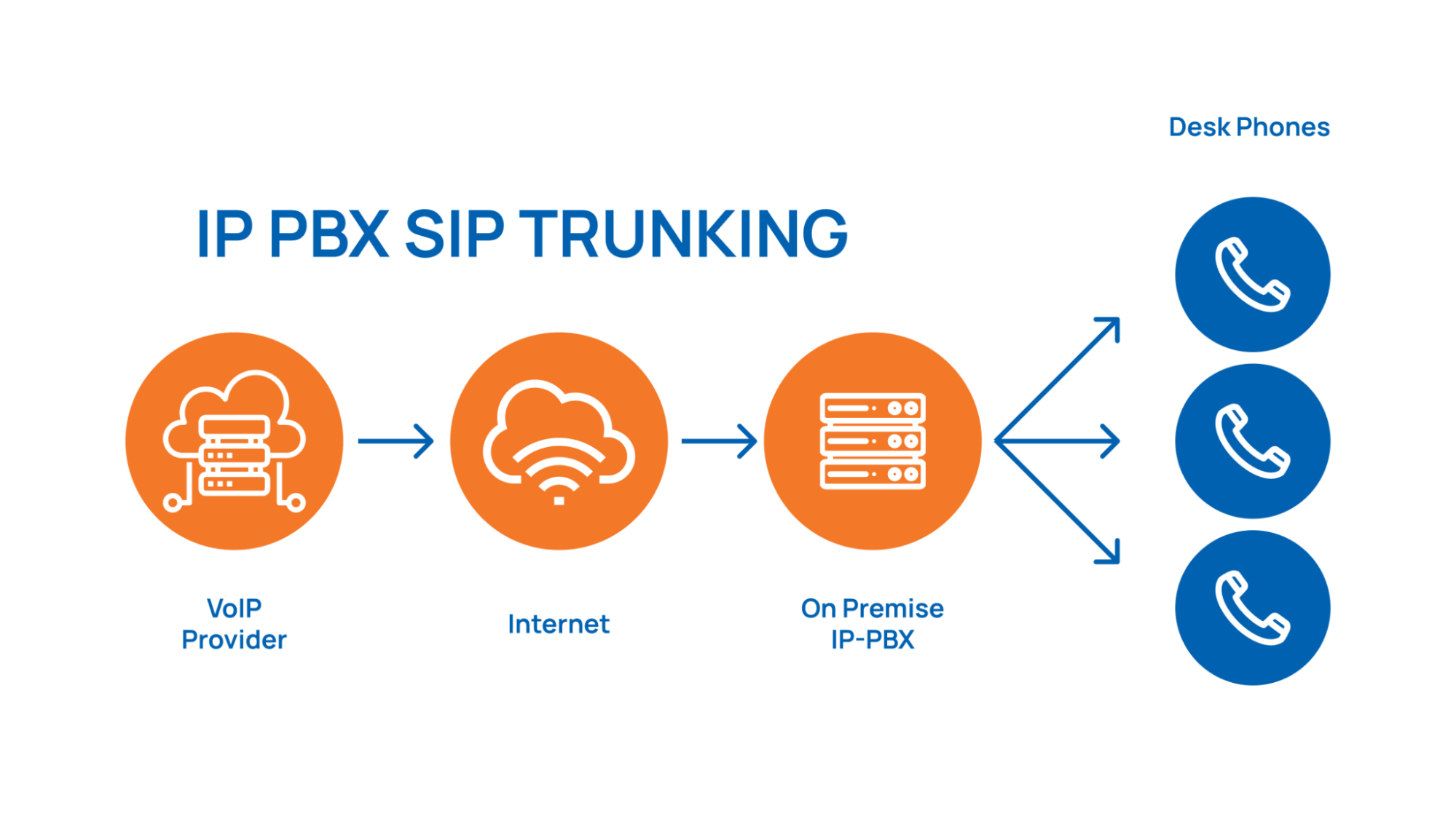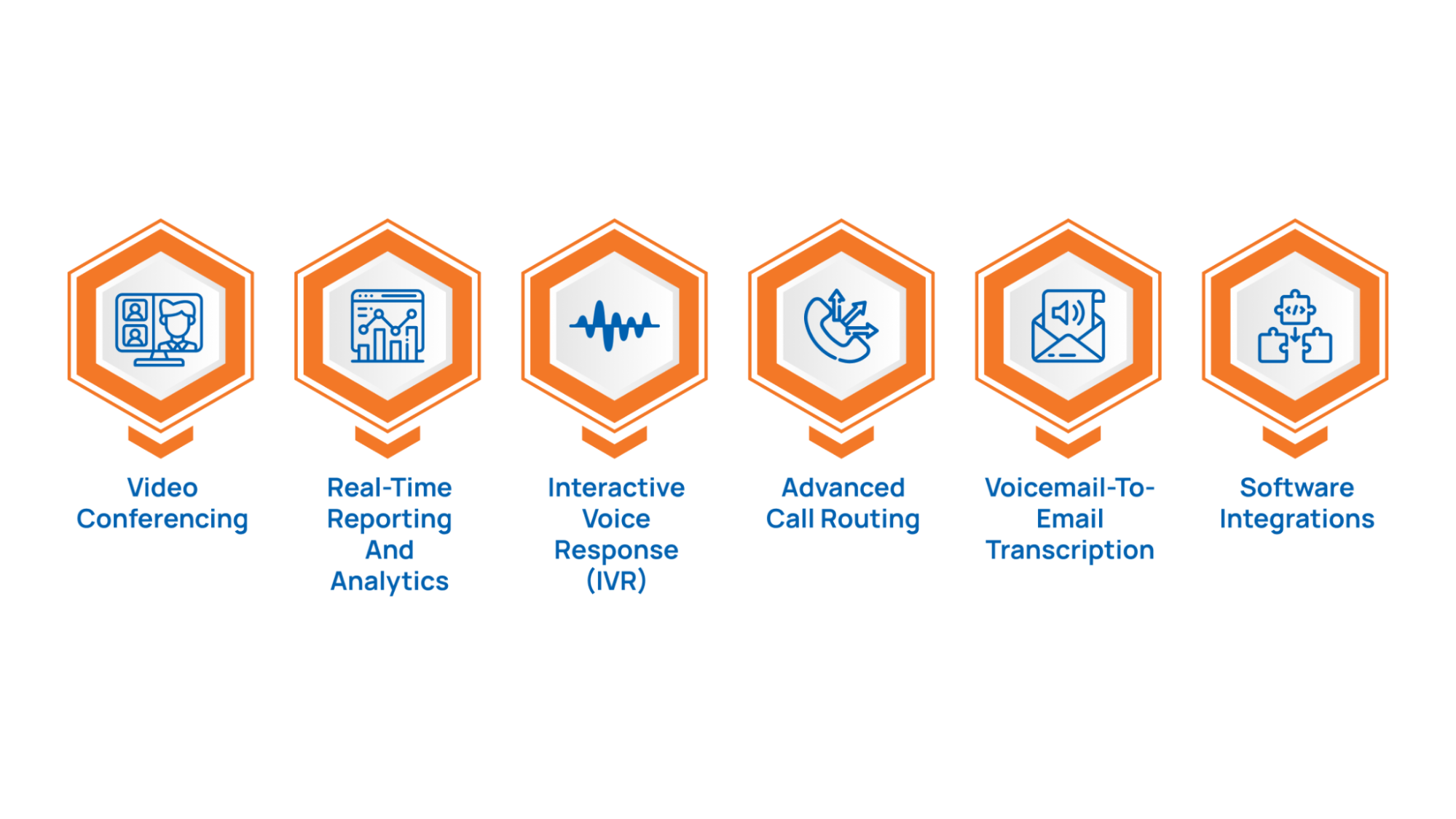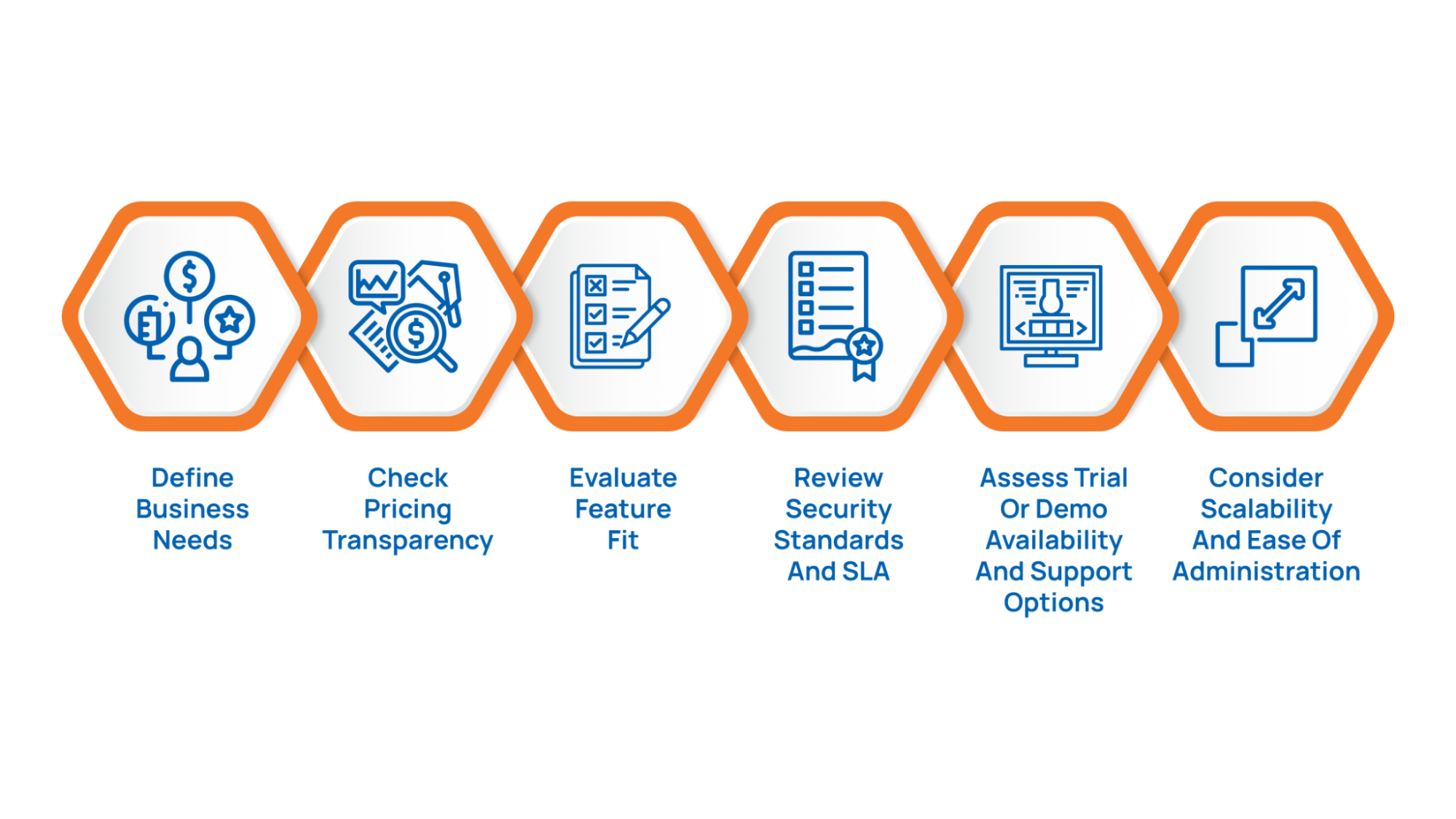Key Takeaways
|
Hosted Phone Systems: What They Are and How They Work
A hosted phone system, sometimes called a cloud phone system, is a business telephone service that works over the internet and is managed by a third-party provider. Instead of installing and maintaining on-site servers or phone equipment, the provider hosts the necessary hardware and software in secure data centers. Calls are made using Voice over Internet Protocol (VoIP) technology, which sends voice signals over the internet rather than traditional copper lines. This setup reduces the need for in-house maintenance and eliminates enormous upfront hardware costs. Businesses typically pay a monthly subscription fee, making expenses predictable. Hosted phone systems often include a wide range of features such as call routing, voicemail, conferencing, and integration with other business tools.How a Hosted Phone System Works
 A hosted phone system replaces physical phone lines with an internet-based connection. Here’s how it operates:
A hosted phone system replaces physical phone lines with an internet-based connection. Here’s how it operates:
- Provider Connection – You choose a hosted phone service provider. They connect your business to their system via the internet.
- Call Handling – All calls pass through a cloud-based PBX (Private Branch Exchange), which acts as the system’s central switchboard.
- Routing – Incoming calls are routed according to preset rules, such as forwarding to a specific extension, an auto attendant, or a mobile device.
- Outbound Calling – Outgoing calls can be made from various devices, including IP desk phones, computers, or smartphones with VoIP apps.
- Conversion – Voice signals are converted into digital data packets for transmission, then reassembled into audio at the destination.
Understanding the Different Types of Hosted Phone Systems
Here are the two main types of hosted phone systems, each offering unique advantages for different business needs.1. Cloud-Hosted PBX
 A cloud-hosted PBX system is a complete telephone system managed entirely by the service provider. All phones connect directly to the provider’s cloud servers via the internet. Session Initiation Protocol (SIP) is used to establish and manage calls.
Essential features include auto attendants, voicemail-to-email, call recording, video conferencing, and CRM integration. They require minimal on-site equipment, are easy to scale, and come with provider-managed updates and maintenance. However, they need compatible IP phones and a stable internet connection for best performance.
A cloud-hosted PBX system is a complete telephone system managed entirely by the service provider. All phones connect directly to the provider’s cloud servers via the internet. Session Initiation Protocol (SIP) is used to establish and manage calls.
Essential features include auto attendants, voicemail-to-email, call recording, video conferencing, and CRM integration. They require minimal on-site equipment, are easy to scale, and come with provider-managed updates and maintenance. However, they need compatible IP phones and a stable internet connection for best performance.
2. SIP Trunking
 SIP trunking is suited for businesses that already have an on-premise PBX system and want to upgrade it to work over the internet. SIP trunks replace traditional phone lines with virtual connections delivered over the internet. The existing PBX remains in place, but calls are routed digitally instead of through analog lines.
This option retains existing hardware, supports a gradual transition to VoIP, and offers call failover for redundancy. It has lower ongoing costs than a full hardware replacement and allows you to keep your current PBX setup. However, it provides fewer advanced features than a fully cloud-hosted PBX and still requires internal IT resources for maintenance and upgrades.
SIP trunking is suited for businesses that already have an on-premise PBX system and want to upgrade it to work over the internet. SIP trunks replace traditional phone lines with virtual connections delivered over the internet. The existing PBX remains in place, but calls are routed digitally instead of through analog lines.
This option retains existing hardware, supports a gradual transition to VoIP, and offers call failover for redundancy. It has lower ongoing costs than a full hardware replacement and allows you to keep your current PBX setup. However, it provides fewer advanced features than a fully cloud-hosted PBX and still requires internal IT resources for maintenance and upgrades.
Hosted Phone System Setup: What to Expect During Deployment
Setting up a hosted phone system is faster and simpler than installing traditional PBX hardware. With the right provider, deployment can be completed in hours, giving your business instant access to advanced communication features.To ensure smooth deployment, you’ll need:
|
-
Speed and Ease
-
Flexibility and Scalability
-
Hybrid Options
Hosted or Cloud-Based UCaaS: What’s the Difference?
The terms hosted phone system, cloud phone system, and Unified Communications as a Service (UCaaS) are often used interchangeably, but they’re not exactly the same. A hosted phone system is a voice-focused service where the provider manages your phone system off-site and delivers it over the internet. It’s primarily designed for calling, voicemail, and related telephony features. A cloud-based UCaaS solution goes beyond voice. It integrates multiple communication tools — such as voice calls, video conferencing, instant messaging, and file sharing — into a single platform. This approach creates a unified environment where teams can collaborate across different channels without switching between separate apps.| Aspect | Hosted Phone System | UCaaS |
| Scope of Services | Voice-focused telephony features. | Full suite: voice, video, messaging, collaboration. |
| Collaboration Tools | Phone, voicemail, call routing. | Chat, video, file sharing, team tools. |
| Integration | Basic call management integrations. | Seamless CRM, project, and app integrations. |
| Best For | Reliable, cost-effective phone needs. | Centralized communication and collaboration. |
Advantages of a Hosted Phone System
Below are some of the main advantages a hosted phone system can offer your business.-
Quick and Simple Setup
-
Lower Costs
-
Unified Communication Features
-
Flexibility for Remote Work
-
Scalability
-
Enhanced Security Measures
Disadvantages of a Hosted Phone System
Below are some of the main disadvantages to consider before choosing a hosted phone system.-
Dependence on Internet Quality
-
Bandwidth Demands for Multiple Users
-
Potential Downtime During Outages
-
Security Considerations
Essential Hosted Phone System Features for Your Business
 When choosing a hosted phone system, it’s important to focus on features that improve communication, efficiency, and customer experience. Below are essential features to look for.
When choosing a hosted phone system, it’s important to focus on features that improve communication, efficiency, and customer experience. Below are essential features to look for.
-
Video Conferencing
-
Real-Time Reporting and Analytics
-
Interactive Voice Response (IVR)
-
Advanced Call Routing
-
Voicemail-to-Email Transcription
-
Software Integrations
Essential Pricing Models to Consider for Your Hosted Phone System
The total cost of a hosted phone system depends on several factors. The number of users directly impacts subscription costs, as more users require higher service tiers. Advanced features and modules such as call analytics, CRM integrations, and call recording are typically available in higher-tier plans, increasing the overall cost. Support and maintenance can also add to the expense; some providers offer full support as part of the package, while others charge extra for priority or 24/7 access. Additionally, training costs should be considered, especially for feature-rich systems that may require extensive onboarding for staff. When compared to traditional PBX systems, hosted phone systems offer lower upfront costs as they don’t require expensive hardware or installation. Reduced maintenance is another advantage, as the provider takes care of updates, repairs, and infrastructure, eliminating the need for in-house maintenance. Overall, businesses can save between 30% and 70% on operating costs by avoiding the need for costly hardware investments and reducing the number of maintenance staff required. Let’s explore the essential pricing models, helping you make a well-informed decision.Pricing Models
Per-User Monthly Pricing Many providers charge a fixed amount per user, billed monthly. Plans are often tiered, from basic options with core calling features to enterprise-level packages with advanced tools like analytics, call recording, and integrations. This model is predictable and easy to budget for, especially for small to mid-sized teams. Usage-Based Pricing Some providers charge based on call volume, minutes used, or international call usage. This model is less standard and best suited for businesses with low call volumes but occasional high-value calls. Seat-Based or Minimum User Commitments Certain plans require a minimum number of seats (users) regardless of actual usage. This is common in enterprise contracts and can be cost-effective for larger teams that need guaranteed capacity.Hosted Phone Systems: Security Risks and Effective Protection Strategies
Common VoIP Security Risks
|
-
Use Strong Password Policies
-
Conduct Regular Software Updates
-
Ensure Endpoint Security
-
Prioritize Network QoS Configuration
Choosing the Right Hosted Phone System Provider: Important Considerations
 Choosing the right provider ensures your phone system meets your business needs and stays reliable over time. The points below will help guide your decision.
Choosing the right provider ensures your phone system meets your business needs and stays reliable over time. The points below will help guide your decision.
-
Define Business Needs
-
Check Pricing Transparency
-
Evaluate Feature Fit
-
Review Security Standards and SLA
-
Assess Trial or Demo Availability and Support Options
-
Consider Scalability and Ease of Administration
Upgrade Your Voice Communications with PerfectSoft.AI
 At PerfectSoft.AI, we deliver intelligent, high-performance contact center solutions to improve customer satisfaction, boost agent productivity, and streamline operations.
Whether you manage a large-scale BPO, a customer service department, or an outbound sales team, our technology helps you stay connected across all channels while ensuring crystal-clear
We provide advanced VoIP-based Telecom Voice Services that guarantee:
At PerfectSoft.AI, we deliver intelligent, high-performance contact center solutions to improve customer satisfaction, boost agent productivity, and streamline operations.
Whether you manage a large-scale BPO, a customer service department, or an outbound sales team, our technology helps you stay connected across all channels while ensuring crystal-clear
We provide advanced VoIP-based Telecom Voice Services that guarantee:
- High-Quality Voice Calls – Clear and uninterrupted voice communication.
- Reliable Connectivity – Stable and secure connections across all regions.
- Global Reach – Seamless communication with teams and customers worldwide.
Frequently Asked Questions
-
How much does a hosted phone system cost?
-
What features should I look for in a hosted PBX?
-
Is a hosted VoIP system secure?
-
Can I keep my existing phone numbers with a hosted phone service?
-
Do hosted phone systems support remote work?


Comments